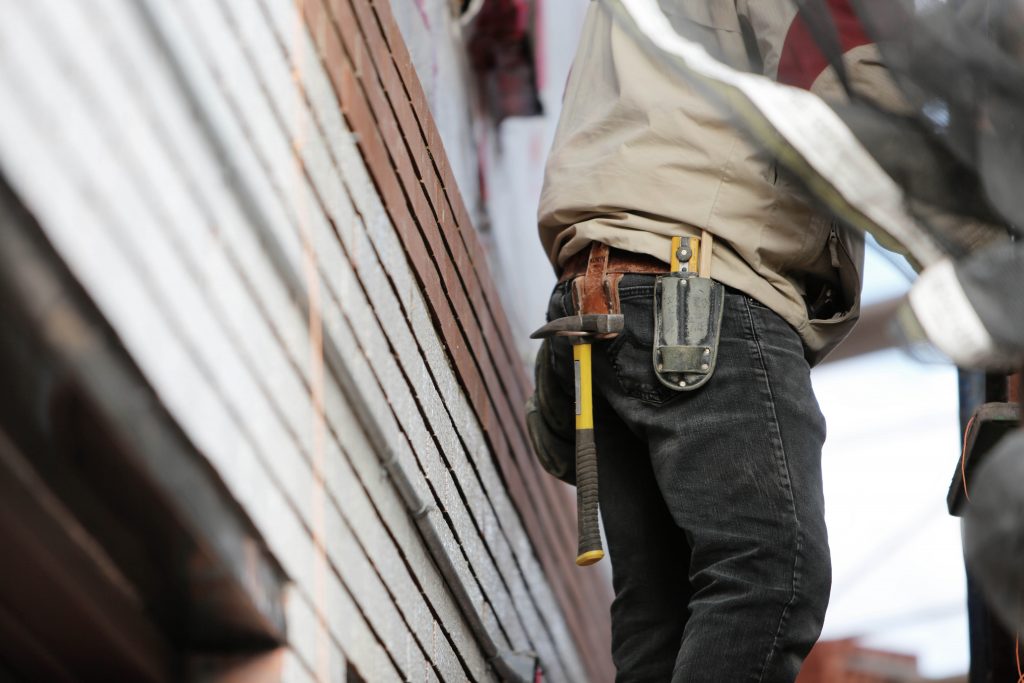Does AB5 Affect Third-Party Construction Claims?


Prior to AB5, independent construction contractors could hold construction companies and property owners liable for any injuries, as they were considered third-parties for not providing workers’ compensation. However, AB5 shifts the classification of independent contractors in California, and may impact the legal procedures for work injury claims.
AB5 and Construction Companies
While AB5 was originally designed to help alleviate gig workers under Uber and Lyft, the language of the bill was broadened to include all contract workers. Now, companies that previous hired contractors are required to evaluate workers based on the AB5 standard to determine if they are eligible for employee benefits, such as payroll taxes, workers’ compensation, overtime policies, paid time off, and additional services that full-time employees have.
For the construction industry, this is a massive shift from previous standards of employment. In California alone, there are an estimated 104,150 construction workers, the second highest amount in the United States, according to the U.S. Bureau of Labor Statistics. Many workers are employed as subcontractors, either working at a daily rate or providing specialized skills for specific projects, such as electrical or plumbing work.
As such, they are generally considered separate legal entities to the construction company overseeing the jobsite. If a subcontractor is injured on a jobsite due to the negligence of an employee of the construction company, that company could be held liable in a personal injury claim. Alternatively, the opposite is true, and subcontractors can be held liable for injuries they cause to other workers. However, this could all shift based on the ABC Standard, which determines if a worker is an employee or a contractor.
According to the California Labor Code Section 2750.3. (a)(1) regarding the ABC Standard, a worker must fulfill the following requirements to be considered a contractor:
A. “The person is free from the control and direction of the hiring entity in connection with the performance of the work, both under the contract for the performance of the work and in fact.
B. The person performs work that is outside the usual course of the hiring entity’s business.
C. The person is customarily engaged in an independently established trade, occupation, or business of the same nature as that involved in the work performed.”
With the application of this law to the construction, many day laborers or third-party contractors could potentially be legally considered employees of the construction company overseeing the project. If they must answer to the site supervisor, follow a set schedule, and their trade is the same as the construction company’s regular projects, then they would no longer be contractors.
However, there are exceptions to this rule. California Labor Code Section 2750.3. (f) Subdivision (a) outlines that subcontractors can be evaluated based on the Borello Test. According to the California Department of Industrial Relations, the Borello test classifies a worker as a contractor if they fulfill the following requirements:
- “Whether the worker performing services holds themselves out as being engaged in an occupation or business distinct from that of the employer;
- Whether the work is a regular or integral part of the employer’s business;
- Whether the employer or the worker supplies the instrumentalities, tools, and the place for the worker doing the work;
- Whether the worker has invested in the business, such as in the equipment or materials required by their task;
- Whether the service provided requires a special skill;
- The kind of occupation, and whether the work is usually done under the direction of the employer or by a specialist without supervision;
- The worker’s opportunity for profit or loss depending on their managerial skill;
- The length of time for which the services are to be performed;
- The degree of permanence of the working relationship;
- The method of payment, whether by time or by the job;
- Whether the worker hires their own employees;
- Whether the employer has a right to fire at will or whether a termination gives rise to an action for breach of contract; and
- Whether or not the worker and the potential employer believe they are creating an employer-employee relationship (this may be relevant, but the legal determination of employment status is not based on whether the parties believe they have an employer-employee relationship).”
Determining whether or not you are a third-party contractor in the construction industry can be difficult, but it is important to understand what rights and benefits you have under labor laws. If you are classified as an employee, you may be ineligible to file a personal injury claim against a negligent construction company. Alternatively, being classified as an employees means you are eligible for workers’ compensation benefits in lieu of being able to file a claim.
AB5 and Third-Party Claims
Generally, contract workers are not covered under workers’ compensation programs if they are hurt on a construction site. If the cause of their injury was due to the negligence of another worker, the supervisor, or property owner, they could file a personal injury claim against the construction company overseeing the site. These claims can include medical expenses and lost wages. But this does not mean you are guaranteed compensation for your injury. You, or your attorney, will have to prove it to an insurance company or before a jury if your claim goes to trial.
However, if under the ABC Standard or Borello you are categorized as an employee of a construction company, the situation changes dramatically. By being classified as an employee, the construction company is required under California law to provide you with workers’ compensation benefits. This could mean you receive your benefits much faster, without having to prove negligence in a personal injury claim. But this means dealing with your company’s workers’ compensation insurance, which is also likely to deny your claim or limit coverage, especially if they try to argue that you are a third-party contractor.
Your Rights in a Personal Injury Claim
Depending on how you are categorized under AB5, the process for filing a claim after an accident could change drastically. You may be ineligible for workers’ compensation, but can pursue a third-party claim, or the opposite could be true. In either scenario, however, if your injuries were caused by someone outside of the company, such as a reckless driver, another negligent contractor, or a careless property owner, you may be able to pursue compensation in a personal injury claim.
If so, then you should contact a San Diego personal injury attorney at jD LAW, P.C. Our legal team can evaluate whether or not you have a case and who can be held liable for your injuries. Call us at (760) 630-2000 to discuss your legal options.
Don’t Waste Any Time!
Call us today for a FREE Consultation
(760) 630-2000


- Criminal Law Expert - Led by a Board Certified Criminal Law Specialist. Read More
- 100s of Cases Tried - Since 1990, James Dicks has represented hundreds of clients. Read Bio
- Client Approved - Read our online testimonials from satisfied jD LAW Clients. Yelp Reviews
- May 30, 2024
When Juveniles Are Accused of Violent Crimes - May 20, 2024
What Should You Do During a Traffic Stop? - May 10, 2024
The Legal Concept of ‘Intent’ in Theft Crime …
 RSS
RSS




